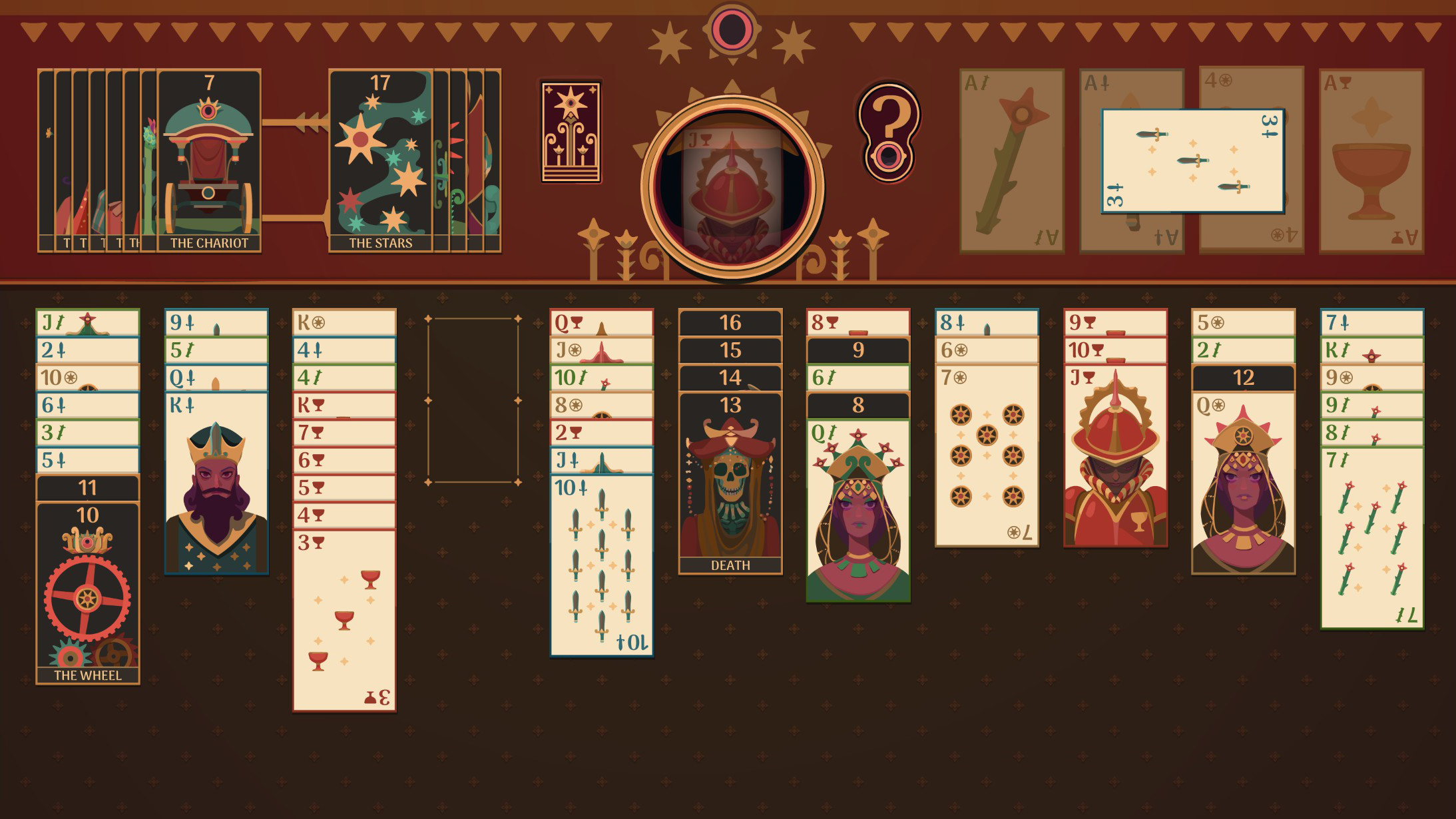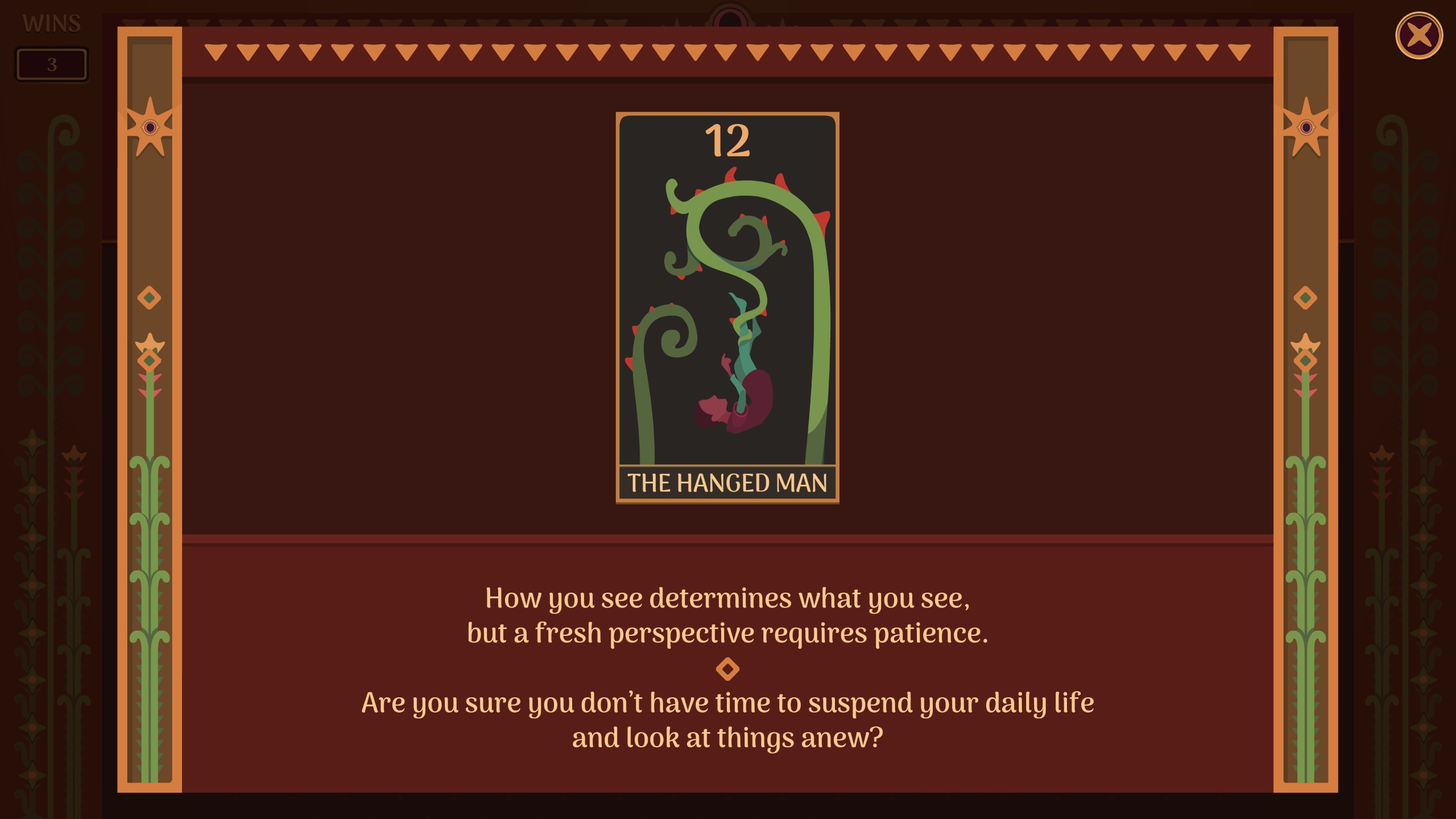Zachtronics combined tarot with solitaire, and it's my new daily jam
Fortune's Foundation, part of The Zachtronics Solitaire Collection, adds a tarot deck into solitaire for a fantastic challenge.

Since I drifted away from Wordle and Knotwords earlier this year I've been looking for a new game to play in short sessions every morning or evening: Just a little something to puzzle over during coffee and again to unwind with at the end of the day. I wouldn't have expected to find what I was looking for in a solitaire game, but Zachtronics proved me wrong.
Part of The Zachtronics Solitaire Collection, which contains eight different solitaire games, Fortune's Foundation is a bit like Freecell… but without the free cells. In addition to the expected 52 playing cards there are also 22 tarot cards mixed in. Thanks to a few interesting rules and the fact that it's a heck of a challenging game—I've been playing a few times each morning and night this week, and I've only won a total of three times—Fortune's Foundation has quickly become my new daily jam.
The playing cards have new medieval suits to replace the traditional spades, clubs, hearts, and diamonds: I'm not sure what they're really called, but I mentally refer to them as cups, stars, swords, and thorns. Otherwise they're standard playing cards, with the goal of getting them to the four foundation piles at the top right, suited, in ace through king order.
The tarot cards, meanwhile, are numbered 0 through 21, and they have their own two foundation piles at the top left. The 0 goes in the first spot, and the 21 goes on the second, and you can build on either pile until they meet in the middle. Meaning, you can place the 1 card on the zero, followed by the 2, but you can also place the 20 on the 21, and then the 19 on the 20.
I know none of this sounds especially tricky yet, but remember that there aren't four free cells at the top to park cards in while you're playing, like in FreeCell. And with those tarot cards mixed into the deck, you're starting off with 70 cards in 10 columns (and one empty column in the middle). If you want to uncover a 2 and it's buried beneath a bunch of other cards, you're in for a lot of work.
Here's the rest of the rules:
- You can only move one card at a time
- You can build up or down on the main columns, so a 5 of cups can go on a 4 of cups or a 6 of cups.
- You can 'park' a single card on the main foundation piles, but it will block any cards from being added there until it's removed
- You can undo your most recent move by clicking the "scrying mirror"
It's really tricky! With so many cards, and so few places to safely move them, I spend most of my time just planning ahead to future moves, unwilling to actually drag and drop a card until I'm sure it will work out. It feels a bit like chess, really, thinking six or seven moves ahead to see what the outcome will be before actually trying something. Parking a card on the foundation is always tempting, just to temporarily get it out of the way to uncover other cards, but it's dangerous. If you can't find a spot in the main columns to put it back, it can really muck up your whole game.
The biggest gaming news, reviews and hardware deals
Keep up to date with the most important stories and the best deals, as picked by the PC Gamer team.
When you win you get a tarot reading based on the final card. Now I am not a tarot enthusiast or believer, and I would find a cascade of cards like the win-state of the old solitaire game far more satisfying—but it's still nice to get a little fortune. The card art is excellent, and there's a soothing soundtrack, too. I am digging it, even when I don't win. Which is almost always.
If you like Solitaire, a healthy challenge, and tarot (or even if you don't like tarot), I really recommend it. You have to buy the entire Zachtronics Solitaire Collection to get it, but it's only $10 and there are 7 other games included. Which, admittedly, I haven't tried yet. I'm too hooked on Fortune's Foundation.


Chris started playing PC games in the 1980s, started writing about them in the early 2000s, and (finally) started getting paid to write about them in the late 2000s. Following a few years as a regular freelancer, PC Gamer hired him in 2014, probably so he'd stop emailing them asking for more work. Chris has a love-hate relationship with survival games and an unhealthy fascination with the inner lives of NPCs. He's also a fan of offbeat simulation games, mods, and ignoring storylines in RPGs so he can make up his own.

